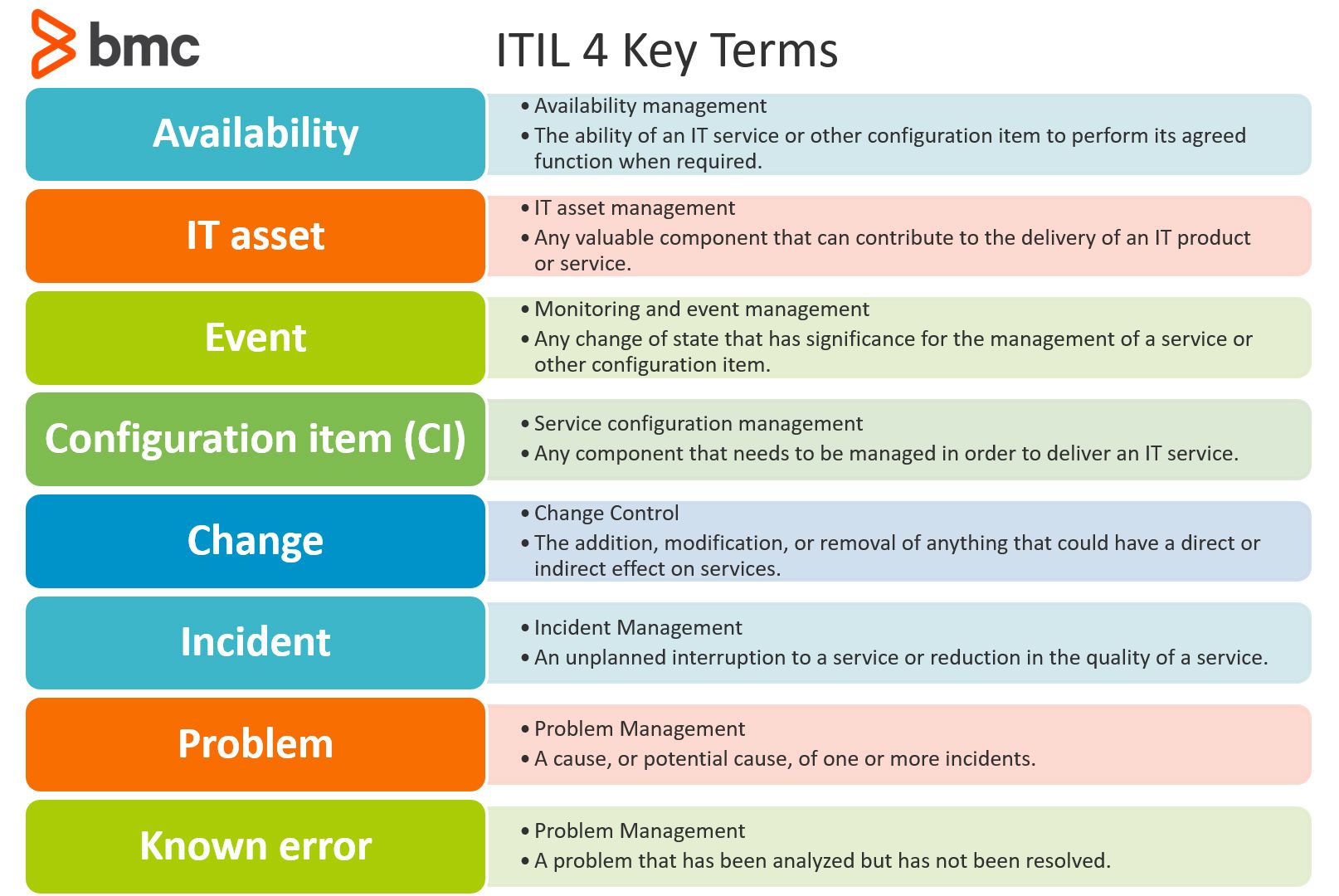Within the ITIL SVS Management Practices, 8 key terms are fundamental in understanding the practices, as well as how they relate with the service value chain activities.
Download Now: ITIL 4 Best Practice e-Books
These all-new for 2020 ITIL e-books highlight important elements of ITIL 4 best practices. Quickly understand key changes and actionable concepts, written by ITIL 4 contributors.
The ITIL 4 Key Terms are:
| Key Term | Definition | Management Practice |
| Availability | The ability of an IT service or other configuration item to perform its agreed function when required. | Availability management |
| IT asset | Any valuable component that can contribute to the delivery of an IT product or service. | IT asset management |
| Event | Any change of state that has significance for the management of a service or other configuration item. | Monitoring and event management |
| Configuration item (CI) | Any component that needs to be managed in order to deliver an IT service. | Service configuration management |
| Change | The addition, modification, or removal of anything that could have a direct or indirect effect on services. | Change control |
| Incident | An unplanned interruption to a service or reduction in the quality of a service. | Incident management |
| Problem | A cause, or potential cause, of one or more incidents. | Problem management |
| Known error | A problem that has been analyzed but has not been resolved. | Problem management |
Note that these key terms are not restricted to their own management practice of origin, but apply across multiple practices as a result of value streams and value chain activities. There are many other terms used in ITIL which we will come across in future articles.

ITIL® is a registered trade mark of AXELOS Limited. IT Infrastructure Library® is a registered trade mark of AXELOS Limited.








